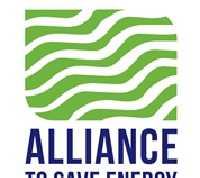New ULI Publication Explores How Access to Healthy Food Creates Real Estate Value and Fosters a Sense of Community
WASHINGTON, D.C. – (RealEstateRama) — Access to healthy food, community farms, chef-driven restaurants, and innovative food retail concepts is increasingly being incorporated into real estate developments as an amenity that adds appeal and value, according to a new publication from the Urban Land Institute (ULI), Cultivating Development: Trends and Opportunities at the Intersection of Food and Real Estate.

The report, prepared by ULI’s Building Healthy Places initiative and ULI’s Center for Sustainability, identifies the inclusion of food in real estate projects as a trend that can translate into enhancements in health, sustainability, economic opportunity, and real estate returns. “The synergy between food and real estate is becoming increasingly evident. Just as food plays a key role in social interaction and creating a sense of community, real estate plays a significant role in shaping how people access and experience food,” said ULI Senior Vice President Rachel MacCleery, who directed the research. “An emphasis on access to healthy food is spurring innovative developments that are enhancing the overall prosperity, sustainability and livability of our communities.”
A diverse range of developments with strong food components are profiled: Aria Denver in Denver; Chelsea Market in New York City; CityCentre in Houston; The Constellation in Madison, Wisconsin; The Packing House in Anaheim, California; The ReFresh Project in New Orleans; Serenbe in Chattahoochee Hills, Georgia; and Union Market in Washington, D.C. These case studies and other developments featured in the report fit within a certain project type:
- Agrihoods – single-family, multifamily or mixed-use communities built with a working farm as a focus;
- Food-centric residential developments – single-family or multifamily developments built around community gardens or restaurants that use locally grown food;
- Next-generation urban markets – food halls that employ innovative food sourcing concepts to encourage entrepreneurship and foster a sense of community;
- Food-centered retail and mixed-use developments – projects with restaurants and food stores as central components;
- Food hubs and culinary incubators – regional processing and distribution centers that provide entrepreneurs access to commercial kitchen space and connect them to commercial customers; and
- Innovations and innovators – policies and investors promoting sustainability, healthy food access, and economic development.
The report examines the intersection of food and real estate from three perspectives – the impact on people, the environment and real estate values. Among the key take-aways:
- Investments in food-related enterprises within the context of larger projects can boost a developer’s bottom line, while addressing health and environmental goals.
- Projects involving food and real estate require innovation, creativity, new business models, and inventive partnerships in order to be successful.
- Food-related enterprises can create an attachment to development projects, adding value and creating stronger community social ties.
- Successful food-centric development requires partnerships with established local groups, including neighborhood activists, nonprofits, anchor businesses and food purveyors.
- Partnerships between developers and other stakeholders can result in the inclusion of services such as wellness clinics and nutrition and cooking programs that can enhance a focus on healthy food.
- Communal gardens are low-cost amenities that can add value to developments.
- The development community has a role in ensuring that places where food is grown, produced and distributed can adapt to challenges posed by climate change, fossil fuel use and high levels of food waste.
- More retailers and restaurants with healthy food options are needed in low-income areas; however, being economically viable in these areas may require support from community development financing institutions or other government programs.
- A variety of transportation options is necessary to ensure access to healthy food for all community residents.
- Public sector officials may need to consider revisions to zoning codes or incorporate policies that increase food access into new plans.
Cultivating Development is the result of a program of work conducted by ULI’s Building Healthy Places initiative and the Center for Sustainability that involved convening ULI members, local government officials and experts in the food, public health and related industries at forums in New Orleans and Tarrytown, New York. The forums, held earlier this year, explored the challenges, trends and opportunities for real estate and development that are presented by food, with a focus on food access, food systems, food as a revitalization strategy and food as an economic ladder. The report summarizes insights from forum participants as well as findings from site visits and additional ULI research on food and real estate. ULI’s work on food and real estate is supported by the ULI Foundation, Colorado Health Foundation and Leichtag Foundation.
About the Urban Land Institute
The Urban Land Institute is a nonprofit education and research institute supported by its members. Its mission is to provide leadership in the responsible use of land and in creating and sustaining thriving communities worldwide. Established in 1936, the institute has nearly 40,000 members worldwide representing all aspects of land use and development disciplines. For more information, please visit uli.org or follow us on Twitter, Facebook, LinkedIn, and Instagram.
contact Trish Riggs at 202-624-7086
by Robert Krueger















